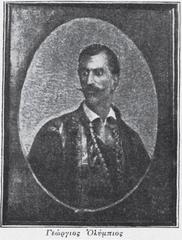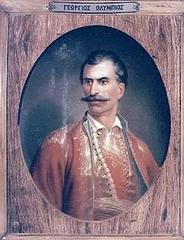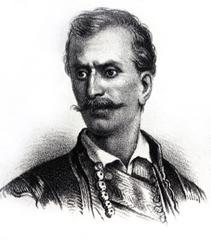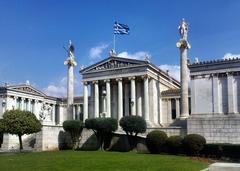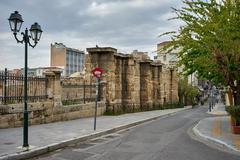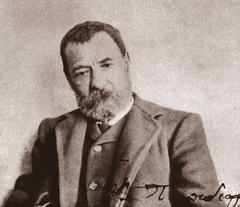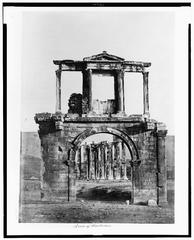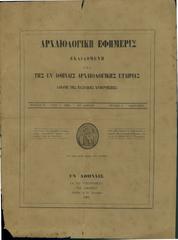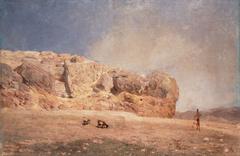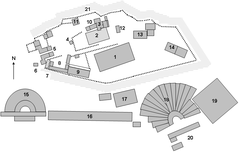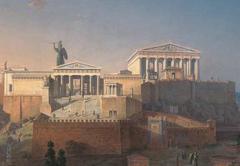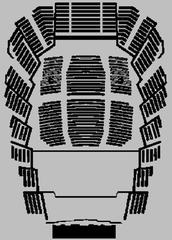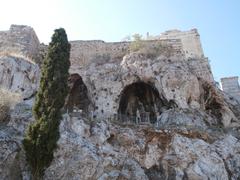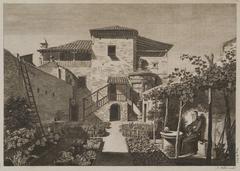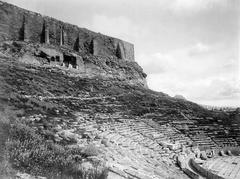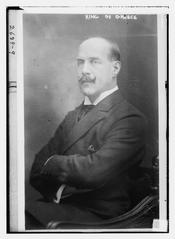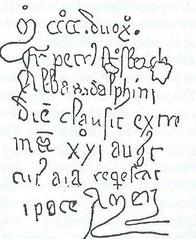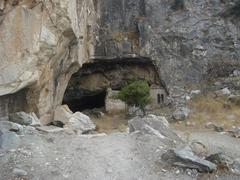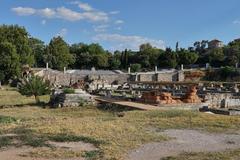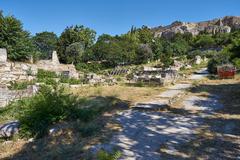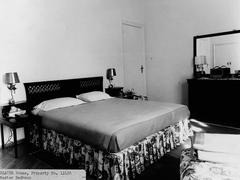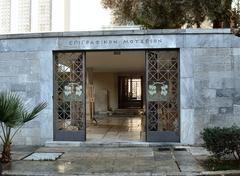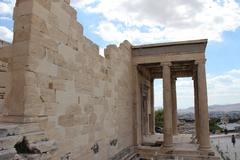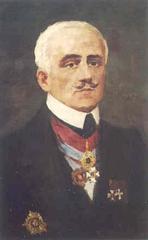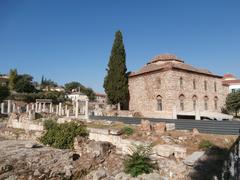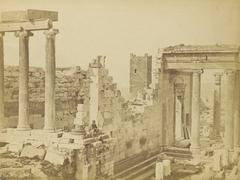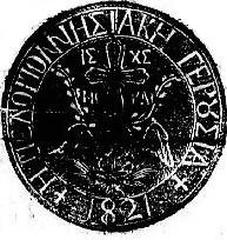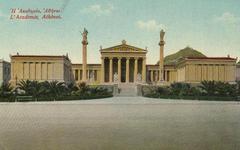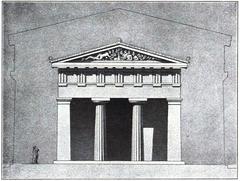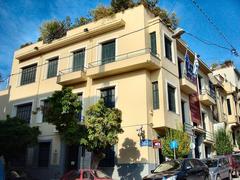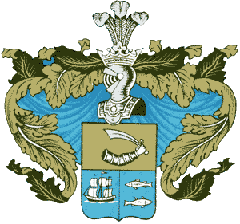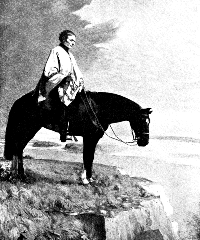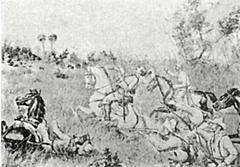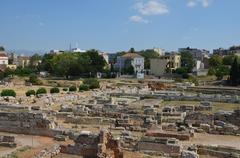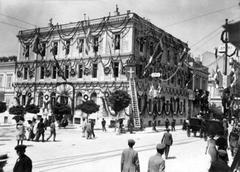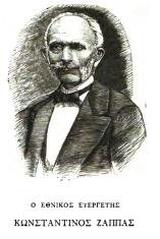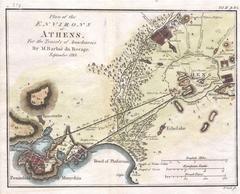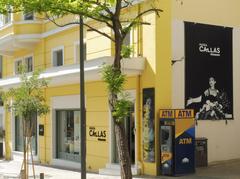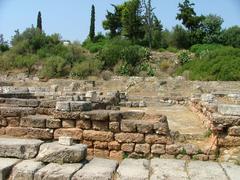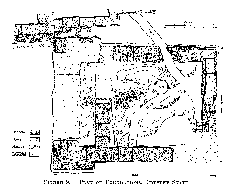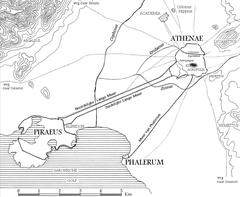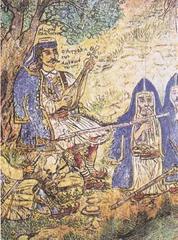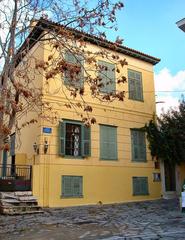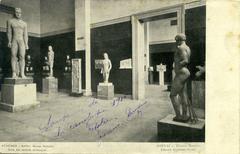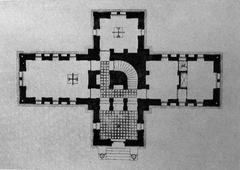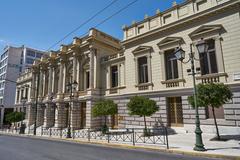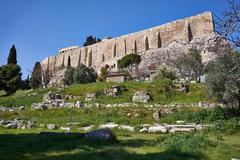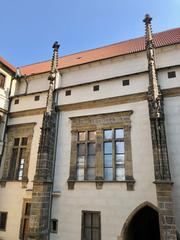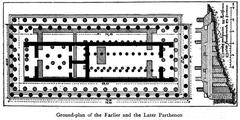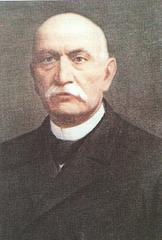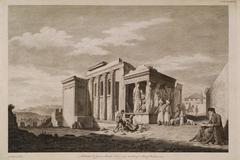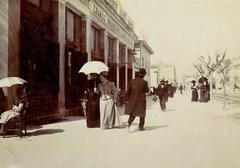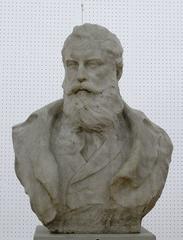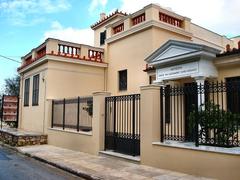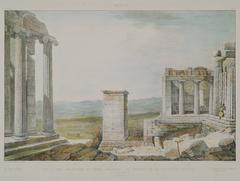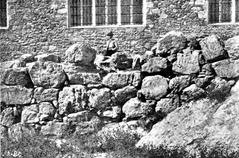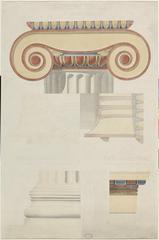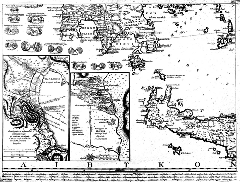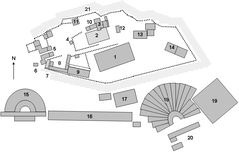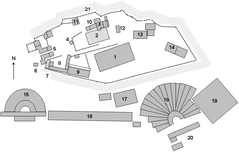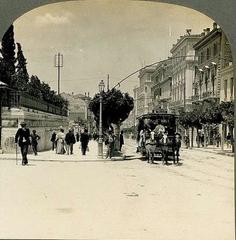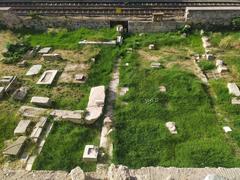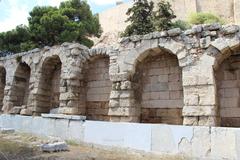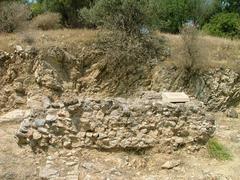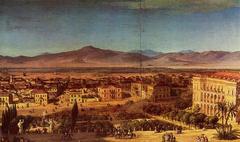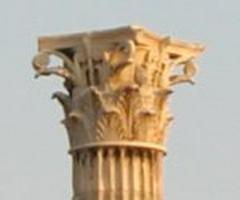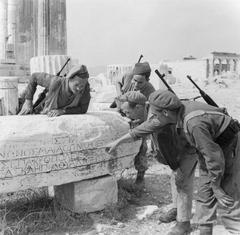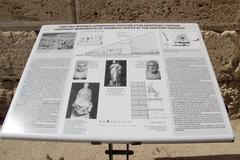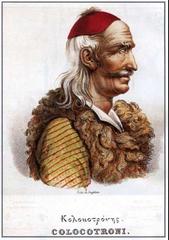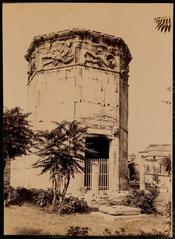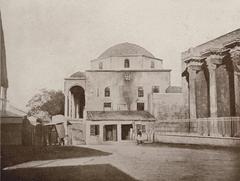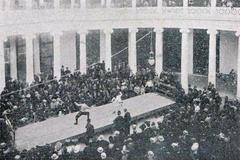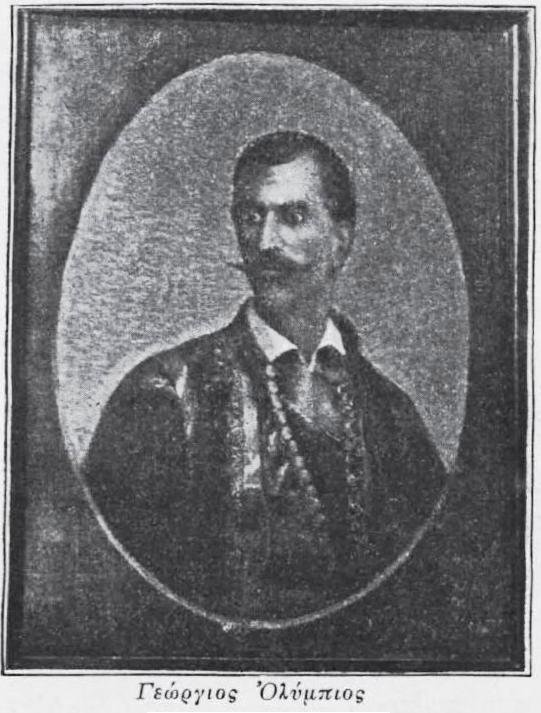
Giorgakis Olympios Visiting Hours, Tickets, and Historical Significance in Athens, Greece
Date: 14/06/2025
Introduction
The Giorgakis Olympios Monument in Athens is a profound tribute to one of Greece’s most revered figures of the War of Independence. Olympios, a courageous armatolos of Aromanian descent born near Mount Olympus in 1772, played a pivotal role in both the Greek and Balkan struggles against Ottoman rule. His leadership and ultimate sacrifice at the Secu Monastery in 1821 have made him a lasting symbol of patriotism and unity. This article provides a comprehensive guide to visiting the monument, including its historical context, practical visitor information, and recommendations for exploring related sites in Athens.
Table of Contents
- Who Was Giorgakis Olympios?
- Historical Background and Legacy
- Role in the Greek War of Independence
- The Final Stand and Balkan Impact
- Key Memorials and Sites in Athens
- Visiting Hours and Tickets
- Guided Tours and Events
- Directions and Accessibility
- Practical Travel Tips
- Nearby Attractions
- Commemorative Events
- Frequently Asked Questions (FAQ)
- Conclusion
- Further Resources
Who Was Giorgakis Olympios?
Giorgakis Olympios (1772–1821) was a leading revolutionary who contributed significantly to the early stages of the Greek War of Independence. Born in Livadi, Olympus region, he was of Aromanian (Vlach) descent and became a prominent armatolos. Olympios’s influence extended beyond Greece—he allied with Serbian revolutionaries, fought in the Russo-Turkish War, and was an active member of the Filiki Eteria, the secret society that galvanized the 1821 uprising (Greatest Greeks).
Historical Background and Legacy
Olympios’s life was marked by relentless resistance against Ottoman rule. By age 25, he led armatoles to Serbia, supporting Karageorgis and later collaborating with the Hypsilantis family in the Danubian Principalities. He was honored as a colonel in the Russian army for his military successes and became a central figure in the revolutionary movement (Greatest Greeks).
Role in the Greek War of Independence
As a high-ranking Philiki Eteria member and ally of Alexander Hypsilantis, Olympios played a key role in launching the revolution. In 1821, his leadership during the crossing of the Pruth River and the Battle of Dragashani inspired both Greek and Balkan resistance. Even after setbacks, he continued to fight for the cause, organizing troops and strategizing further uprisings (Greatest Greeks).
The Final Stand and Balkan Impact
Olympios’s last stand at the Secu Monastery is legendary—besieged, he chose to detonate gunpowder rather than surrender, becoming a national martyr. His example fostered solidarity among Balkan peoples, influencing leaders like Theodore Vladimirescu of Wallachia and strengthening the Greco-Serbian alliance (Neos Kosmos). Historians, including Spyridon Trikoupis, have lauded his honor and vision.
Key Memorials and Sites in Athens
Giorgakis Olympios Monument
Found in central Athens, this monument is a focal point for commemorating Olympios’s sacrifice. While the exact location can vary with public works, it is typically situated near other Greek independence memorials and is accessible year-round, free of charge.
Alt text: Giorgakis Olympios Monument in Athens commemorating the Greek War of Independence.
Giorgakis Olympios Street
Located in the lively Koukaki neighborhood, Giorgakis Olympios Street (Οδός Γεωργάκη Ολυμπίου) is easily accessible via Syngrou-Fix metro station. The street, lined with cafes and local shops, offers a tangible link to Olympios’s legacy amid vibrant city life (Introducing Athens).
National Historical Museum
Housed in the Old Parliament building, the National Historical Museum features extensive exhibits on the War of Independence and includes Olympios among key figures. The museum is open Tuesday–Sunday (typically 8:30 AM–3:30 PM), with tickets under €5 and discounts for students and seniors (National Historical Museum).
Benaki Museum
The Benaki Museum’s 1821 collection provides further context on the revolution and Olympios’s role. Located near Syntagma Square, it is easily reachable by public transport and offers rotating exhibitions on Greek history (Benaki Museum).
Visiting Hours and Tickets
- Monuments and Memorials: Accessible at all times, no entry fee.
- National Historical Museum: Open Tuesday–Sunday, usually 8:30 AM–3:30 PM. Check official site for seasonal adjustments. Entry €5 or less; discounts apply.
- Benaki Museum: Hours and ticket prices vary; consult the museum’s website for current details.
- Guided Tours: Many Athens walking tours include Olympios sites. Booking ahead is advised, especially in peak seasons (Visit Sights).
Guided Tours and Events
Specialized walking tours focusing on the Greek War of Independence often include Olympios memorials, the Filiki Eteria sites, and the Old Parliament House. During Greek Independence Day (March 25), commemorative events and ceremonies are held at key locations (Acropolis Greece).
Directions and Accessibility
- Getting There: Use Athens Metro (Syngrou-Fix or Acropolis stations) to reach Koukaki and central sites. Buses and taxis are also widely available.
- Accessibility: While the city is improving access, some historic areas have uneven terrain and limited ramps. The main monument is wheelchair accessible, but be prepared for cobblestones in surrounding neighborhoods (Sage Traveling).
Practical Travel Tips
- Best Times: Visit from April–June or September–October for mild weather.
- Attire: Modest, respectful clothing is appreciated at historical and religious sites.
- Safety: Athens is generally safe; watch for pickpockets in crowded areas (Nomadic Matt).
- Amenities: Restrooms and cafes are available nearby in Koukaki and Plaka districts.
Nearby Attractions
- Acropolis and Acropolis Museum: A short walk from Koukaki, these iconic sites offer context on both ancient and modern Greek history.
- Philopappou Hill: Ideal for panoramic views and photography.
- Plaka and Monastiraki: Explore historic neighborhoods for shopping, dining, and additional museums (Bey of Travel).
Commemorative Events
- Greek Independence Day (March 25): Parades, wreath-laying, and reenactments across Athens, including Olympios memorials.
- Museum Exhibitions: Special exhibits at the National Historical Museum and Benaki Museum coincide with national anniversaries.
Frequently Asked Questions (FAQ)
Q: Are there entrance fees for Giorgakis Olympios monuments?
A: No, outdoor memorials and streets are free to visit. Museums may charge a modest fee.
Q: What are the visiting hours?
A: Monuments are accessible at all times. Museums are typically open Tuesday–Sunday, 8:30 AM–3:30 PM.
Q: Are the sites wheelchair accessible?
A: Main monuments are accessible, but some surrounding streets have uneven surfaces.
Q: Are guided tours available?
A: Yes, several operators offer historical tours including Olympios-related sites.
Q: What is the best season to visit?
A: Spring and autumn offer the most comfortable weather and fewer crowds.
Conclusion
Visiting the Giorgakis Olympios Monument and associated sites in Athens offers a unique opportunity to connect with Greece’s revolutionary past and the values of freedom, unity, and resilience that shaped the nation. From the monument in Koukaki to insightful museum exhibits, each site deepens your understanding of Olympios’s enduring legacy and the broader struggle for Greek independence. For an enriched experience, take advantage of guided tours, plan your visit during commemorative events, and explore the broader historical landscape of Athens.
Embrace responsible tourism by supporting local businesses, respecting historical sites, and utilizing resources such as the Audiala app for guided tours and up-to-date information. Begin your journey into Greek history and be inspired by the spirit of Giorgakis Olympios.
Further Resources
- HellenicaWorld: Giorgakis Olympios
- Greatest Greeks: Giorgakis Olympios
- Neos Kosmos: Revolution Exported
- Acropolis Greece
- Visit Sights Athens
- Introducing Athens Top 10
- National Historical Museum
- Benaki Museum
- Hellenic Ministry of Culture
For more detailed travel tips and accessibility information, consult:
Ready to explore Athens’s rich heritage? Download the Audiala app for guided tours, insider tips, and up-to-date event information. Follow us on social media for the latest updates!
